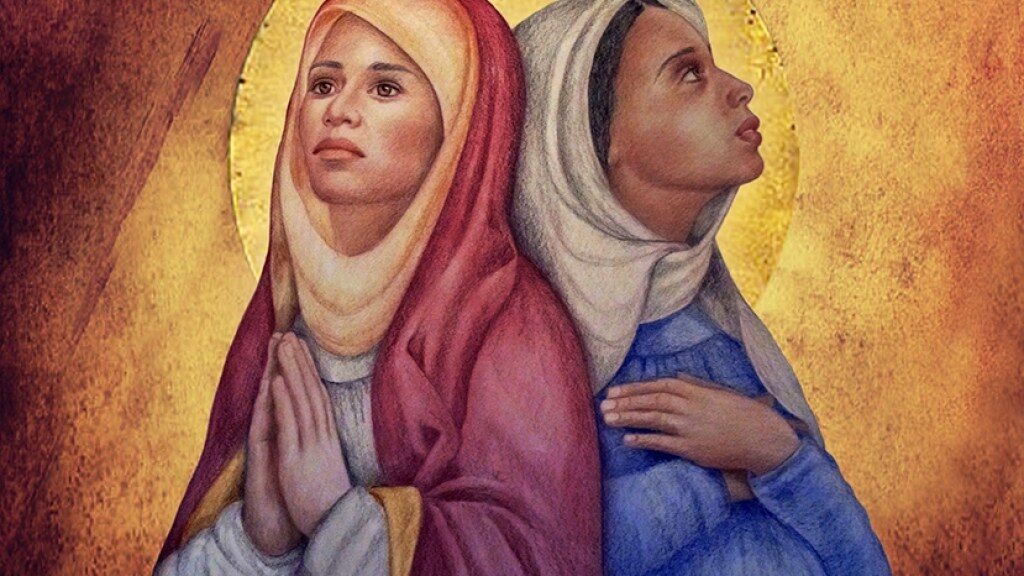Quickly I flipped through my book, searching with purpose. Page after page after page I turned, my eyes desperate to see something familiar. I closed the book in defeat; I could not find myself. In a 6th-grade history textbook with well over 200 pages, stories about women were sparse. I sought stories about women because I wanted to know where I came from. I wanted to know what life was like for women in the ancient world. What lessons could I learn from them? What dreams did they have? What successes? Failures? I wanted to see myself in them, to have role models to guide me as I approached womanhood. I was left disheartened at the lack of stories that reflected me.
Part of the purpose of Women Disciples is to uncover stories of women in the Bible and in church history and see what we can learn from these diverse and dynamic women. Knowing where we’ve been can help us dream for the future. Since March is Women’s History Month, there seems to be no better opportunity than now to look at a few important women in church history, Perpetua and Felicitas.
Perpetua and Felicitas are connected because they shared the same household, the same faith, and the same fate. Perpetua was a North African noblewoman who lived at the turn of the third century AD, and Felicitas was a part of her household as a slave (it’s important to note that slavery in the ancient world was vastly different than American slavery; slavery in the ancient world was not based on race but economic status). During a wave of persecution sparked by Roman patriotism, they were arrested along with their catechism teacher and a few fellow Christians.
What is extraordinary about these women is their commitment to their faith; they never wavered despite what they faced. Not only was their prison conditions stifling, but Perpetua was a nursing mother to a baby boy, and Felicitas was eight months pregnant. Their last days are recorded in Perpetua’s diary, which you can read by visiting the link below. As a new mother, I can hardly imagine the decision to cling to faith rather than their children was made lightly. Reading the diary, Perpetua’s concern for her baby and family comes through, even while she was resolved to keeping her faith. Though we have no diary account of Felicitas, her courage and commitment shine through Perpetua’s. Before facing beasts and gladiators in the arena, Felicitas gave birth to a baby girl (who was adopted by Christian women). Guards mocked her pain in labor, jeering at the thought of Felicitas being able to face martyrdom. Her answer puts them to shame and reveals her deep faith: “’What I am suffering now,’ she replied, ‘I suffer by myself. But then another will be inside me who will suffer for me, just as I shall be suffering for him.’” Perpetua and Felicitas were martyred on March 7, 203 AD.
Throughout their ordeal, we see two women from very different backgrounds coming together as sisters and supporting each other as they followed Jesus. Their strength was that their faith was their first identity before their family role, economic status, or nationality. Their unity became a source of comfort and encouragement—something that we Women Disciples want to emulate. As role models, Perpetua and Felicitas cheer us on to hold fast to our faith, our God, and each other. They remind us that we do not have to live our faith journey alone.
I walked away from my 6th-grade history book disappointed but determined. Just because women weren’t in my book didn’t mean they didn’t exist. It just meant I would have to dig a bit—and in the process, I would share the gold I find with others. We stand on the shoulders of the Women Disciples before us; it’s awe-inspiring to know that Perpetua and Felicitas are two of them.
Movement Step: Pray for our brothers and sister around the world who are facing persecution for their faith. Pray for the church leaders and missionaries to have the perseverance of Perpetua and Felicitas.
The Martyrdom of Saints Perpetua and Felicitas
https://www.pbs.org/wgbh/pages/frontline/shows/religion/maps/primary/perpetua.html




Esther
Love this so much! Reading about perpetua was one of my favorite books and so awe inspiring to see the love she has for Jesus, even unto death. She is amazing
Jenn Smith Chen
Thank you for reading! Perpetua really is amazing. I love her commitment to pray for direction and her courage to accept what God shows her. Definitely looking forward to meeting her and Felicitas someday!
Jenn Smith Chen
I agree!! As a new mom, she also inspires me in a new way! Thanks for reading!